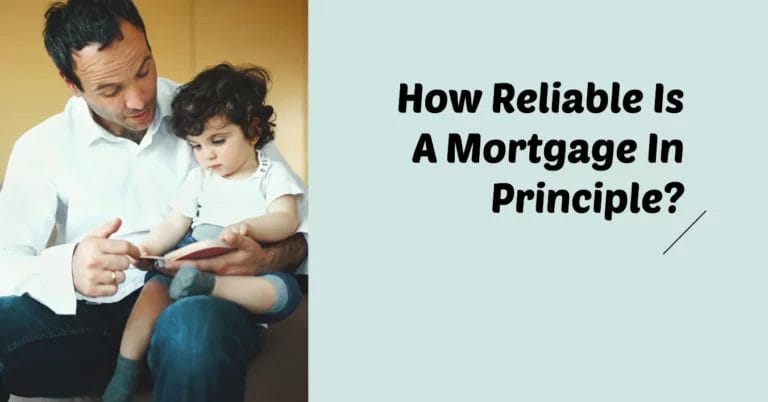How Much Do I Need to Earn to Get a Mortgage of £250,000?
Getting a £250,000 mortgage for your dream home can feel overwhelming. This guide is here to help you with expert mortgage advice to understand the mortgage term and affordability.
Understanding the right mortgage type and what lenders need for approval is crucial for both first-time buyers and experienced property professionals. Get ready to understand the relationship between income, expenses, and mortgage affordability. We’ll help you navigate the mortgage process with ease.
What Income Do You Need to Get a £250,000 mortgage?
Income can significantly affect your mortgage application, and it is one of the best ways for a lender to judge whether you can keep up with mortgage payments.
Debt-to-income ratio is one of the key terms you will hear, and it is calculated by working out how your monthly income compares to your monthly outgoings.
If you have a low debt-to-income ratio, you are more likely to receive a better mortgage. This term means that you have more disposable income. Even if prices and bills go up, you can comfortably pay everything and still have a little leftover for luxuries.
As a general rule, those who need a mortgage can borrow 4 to 5 times their income from the bank. To obtain a £250,000 mortgage, you would need to earn £62,500. This figure is calculated at 4 times your salary and uses the least lenient end of the scale.
However, some more generous lenders would consider up to 5.5 times your income, meaning in the best-case scenario, you would only need a salary of £45,500 to be awarded a mortgage of 250k.
Some lenders are more generous than others, and there are some exceptions to this borrowing rule. For example, for those using a secured loan as collateral for a mortgage, lenders have been known to stretch to 10 times your income for a mortgage.
This table shows the income required for a mortgage of £250,000. This includes sole or joint income and is dependent on whether you are buying the property with someone else.
While you need a salary of around £45,500-£62,500 per year to get a mortgage of £250,000, this is only the rule of thumb. Many other factors affect the amount of money you can borrow, and these need to be considered before starting your mortgage or remortgage journey.
The Most Important Factors Affecting How Much You Can Borrow
A few important factors affect if, how and when you can get a mortgage of £250,000.
Affordability is a significant factor, and it can affect how much you can borrow from lenders. A lender will want to know that you can comfortably make all your monthly repayments, even if bills and outgoings increase. This means that lenders will assess all of your expenses and outgoings to determine your affordability, and your loan will be partially based on this.
Your source of income is also important. For example, if you are a contractor, some lenders will not let you borrow the maximum amount as they may worry that you do not have a full-time and reliable income every month. If you are self-employed or on a temporary contract, this too may affect how much you can borrow.
Generally speaking, full-time employed income for 6 months to 1 year will be more favourably considered on your mortgage loan application.
Many lenders will also take into consideration your loan-to-income ratio. For example, if you’re earning £10,000 and want to borrow £50,000, this can be an issue. Technically, this fits between 4.5-5.5 times your income, but it is a cause for concern. This is because your income ratio is so big. Lenders are conscious that you need enough money to live and pay your bills. They will be aware that it could be hard for you to keep up with monthly mortgage repayments. The general rule of thumb does not apply here.
Likewise, your loan-to-value ratio is important when considering a mortgage. This is the size of your mortgage compared to the property’s value, and a large deposit can influence this factor. For example, paying a 20% deposit can often be enough to secure a mortgage loan of 4.5 times your yearly income, especially when combined with other positive factors.
Credit history is a difficult sticking point for some people regarding loan applications. If you have missed loan or credit card payments in the past, it is essential to understand that this may affect whether or not you can get a mortgage of £250,000.
It is good to discuss these issues ahead of time with an expert to understand your options to ensure you get the best outcome in your specific financial situation.
In the past, age also played a significant role in borrowing money for a mortgage. It is less important today, but it is still worth considering that your age will affect how much you can borrow. In particular, your age may affect the length of your mortgage along with the amount you need to repay every month.
There is currently no maximum age for applying for a mortgage here in the UK, and it all depends on the individual lender. Some lenders will not agree to 25-year mortgages for people over 65, but some specialist lenders will agree to mortgages for people in their 80s and 90s.
Remember, getting a £250,000 mortgage can be based on many different factors. Every lender will have a different idea of the ideal candidate, and one person’s experience of getting a mortgage might not be your experience.
What Will a £250,000 Mortgage Cost You?
It is important to think about what a mortgage of 250k will cost you on a monthly or yearly basis. While it is great to secure the mortgage loan of your choice, you need to consider your monthly outgoings compared to how much you pay now and how your income will hold up over the year if these outgoings increase.
Your mortgage repayment depends on the percentage you pay each month. For example, a £250,000 mortgage paid over 25 years at 1% equates to £945.18 per month.
These repayments may not differ from the total amount of rent or bills you currently pay per month now. However, as you go into the mortgage process, you must understand the percentage of £250,000 you will be paying and over what amount of time.
There will be other factors that affect the cost of your mortgage repayments. Due to inflation, lenders may increase monthly payments, and interest may be charged on your payments.
As a homeowner, you will be responsible for any repairs or damage to the property, such as broken plumbing, electrical issues, roof repairs or even vandalism. These things will be added to your monthly outgoings and mean that you are potentially paying more than expected alongside your monthly repayments.
£250,000 Mortgage Repayment Comparison
The monthly mortgage payments in the UK on £250,000 can vary depending on various factors, including the number of years you will have this mortgage and the percentage of £250,000 you intend to pay per month.
While we have seen that a £250k mortgage paid over 25 years at 1% is £945.18 per month, this increases depending on certain factors.
For example, at 2%, this monthly repayment goes up to £1,059.64 per month. At 3%, £250,000 mortgage repayments will cost £1,185.53 per month.
Likewise, the monthly payment also increases depending on the number of years it is paid over. For example, a £250,000 mortgage paid over 20 years at 1% is £1,149.74 compared to £945.18 paid over 25 years.
The percentage repayment of £250,000 paid per month and the length of the mortgage in years are crucial factors to consider before agreeing to a £250,000 mortgage repayment plan.
Additional mortgage costs to consider
Starting the mortgage process is exciting, but don’t forget about the additional costs that come with it, beyond the monthly payments. Prepare yourself, because owning a home requires being financially ready for more than just the purchase price.
- Solicitor/legal fees: Solicitors charge fees for their services, which can vary from a few hundred to several thousand pounds depending on the complexity of the property and the extent of the searches needed.
- Arrangement fees: Some lenders may surprise you with arrangement fees, which are usually 0.5% to 1% of the total mortgage amount. For a £250,000 house, that could translate to £750 to £1,500 out of your pocket.
- Broker fees: If you use a mortgage broker, be ready to pay them. They might charge a flat fee (around £500 to £1,000) or a percentage of the loan (usually 0.5% to 1%).
- Stamp duty: Stamp duty is a tax on buying a home. The amount you pay depends on the price of the property, and it can be quite expensive. It’s important to factor this cost into your budget.
- Land registry fee: The Land Registry charges a fee of £45 to £145 to transfer ownership of properties worth over £100,001.
- Valuation fee: Your lender will insist on a valuation to ensure the property’s worth matches the agreed-upon price. Brace yourself for a fee ranging from £250 to £1,500, depending on the assessment’s complexity.
How to Find the Best £250,000 Mortgage Deal For You
In this article, we have answered the question, “how much do I need to earn to get a mortgage of £250,000” and we have considered the important factors that play a role in lenders’ decisions. It is a tricky path to navigate, and it can be daunting when you first set out to find your perfect mortgage deal.
Securing the best £250,000 mortgage deal for you is so important. You might have specific issues when it comes to income source, age or credit history.
An independent broker can help navigate this tough process and assist in obtaining the best mortgage deal for you.
Individual lenders will have their own particular criteria for mortgage applications, and it can be hard to know which factors will hold more weight with the different banks.
At Expert Mortgage Brokers, we have access to the whole market, and we understand the detailed intricacies of what salary you need for the mortgage of your dreams.
From just one place, you can get all the advice and support you need to find the right mortgage for your income. We know which lenders will view you as favourable. Knowledge and experience are everything in this field. Without a broker, you will need to go to each lender individually, and you will have no idea if you are their ideal candidate.
Our expert brokers can provide you with all the help and guidance you need to understand your options and secure your dream home.
Get in touch with us to learn more about your mortgage options and what you need to earn to borrow for your next property purchase.







